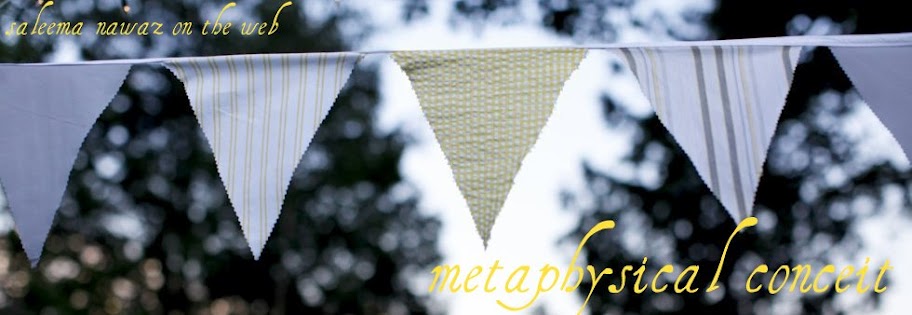One of my favourite parts about writing is naming characters. Growing up, my writing consisted of little else. I'd spend ages constructing a name, a description, a family situation, only to finally start a story that would usually fizzle out after a couple dozen pages. (Though, in retrospect, the world is probably better off without the further adventures of Danya Wilkinson or Calliope Dryden --- or even those of the less outlandishly named Tessa Gilmore.)
To name something is to give it life, to make it real, to make it something in the world. A name is the strongest kind of word there is, a kind of magic word, really. Names h

ave always been important in mythology and religion. In initiation rites, you take on a new name to signify the change you've undergone, but part of the magic of the change is worked by the name itself.
Last week I was working on a narrative essay drawing on some elements of my high school experience, and as always, when trying to write about my own life, I found myself getting hung up on the details --- things that had mattered to me, but which wouldn't matter to anyone else. I was getting especially bogged down by the people in the story, some of whom I could barely even remember. The things I did remember I wasn't sure I could trust. I found myself stumbling through half-sentences, stopping, starting again. I was using initials in place of people's real names, thinking I would sub in some pseudonyms once I had a draft. But after a few unfruitful hours, I started thinking I had better rename them sooner rather than later.
And once I'd renamed them, they became other people. Lighter, freer. Characters who were similar in some respects to the real people who inspired them, but still strangers to me in most of the ways that count. In other words, people I could write about.*
For me, a character name usually starts with a first letter, or a feeling for a letter, and an idea of syllables. I don't think I'm alone among writers in not only having strong feelings about words, but for letters, too, and rhythms. So I might have the idea of something starting with a "B," two syllables long, and I start looking from there. The naming process happens at a very early stage in the creation of a character, early enough that the relationship is symbiotic. The name suggests the character to me as much as the character suggests the name.
I've had a copy of
Baby Names From Around the World since I was nine, bought for this very purpose at a long-defunct Coles bookstore on Bank Street in Ottawa. (I remember getting a lot of concerned looks and questions about it when I was toting it around as a pre-teen.) As for as choosing an appropriate name by looking up its meaning, I think it's usually overkill in fiction to be that obviously thematic. But if the meaning is secretly relevant to you as a writer, for understanding the character, then that can only be a good thing.
Of course, there's no need for a baby name book now. The internet is full of resources for this sort of thing (these days baby names sites seem to be as ubiquitous, and nearly as spammy, as song lyrics sites). I often do just use names I like, but depending on when I want the character to have been born, I consult the
U.S. Social Security Administration website, which gives you a list of names by gender and popularity for every year since 1879, or I Google to find a more specific list, like "Newfoundland surnames" or "Algerian boy names." No matter what, and I'm not sure why this is or what complex circles of influence control this, but I'm always absolutely in line with or slightly ahead of the zeitgeist in terms of my favourite names (four first names from my short-story collection appear in the Top Ten of the
Top 100 Baby Names in Canada in 2008). So for that reason, I feel like I have to be careful when creating characters not born within, say, the last five years.
When I'm working on different sorts of projects, something where I just need to get ideas quick for a whole host of characters, I have fun with the
Random Name Generator. It uses information from the U.S. Census, and it has an adjustable obscurity factor. It's wonderful for last names in particular, especially as phone books are turning into a thing of the past.
If you have any other good tricks for finding the perfect character name, please share.
*Whether the people in question (should they ever read the essay) would make much of this distinction is less certain, and is a troublesome enough topic for another time.
 Somebody pinch me! (Photo courtesy of the Writers' Trust of Canada)
Somebody pinch me! (Photo courtesy of the Writers' Trust of Canada)



